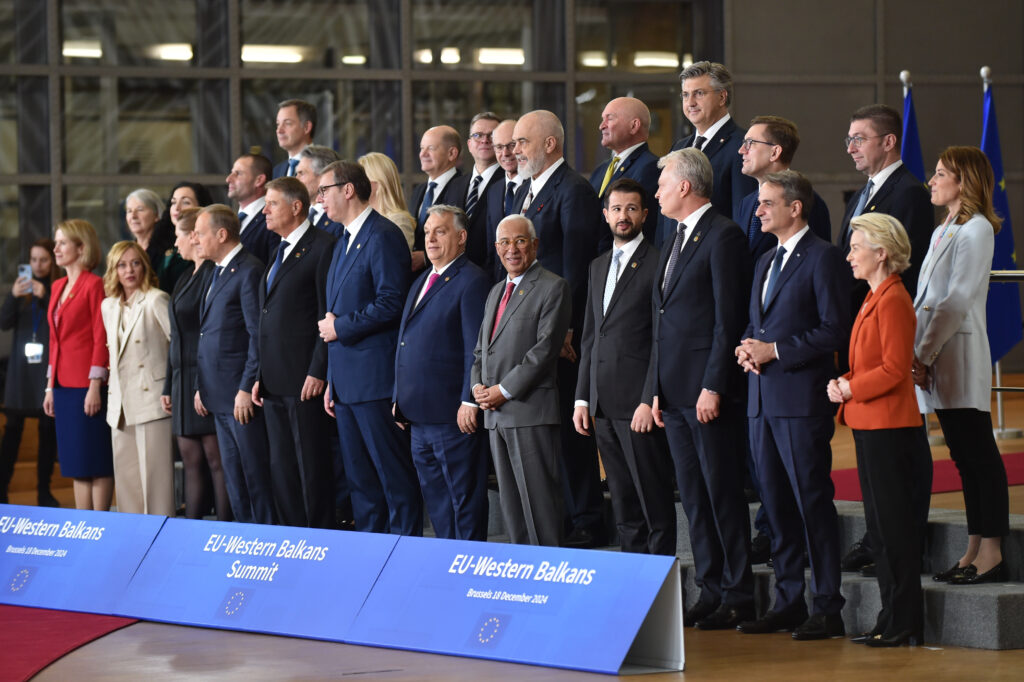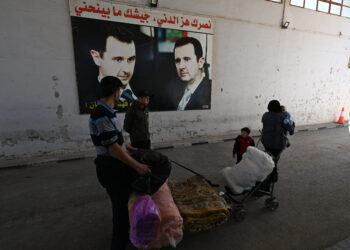Brussels – The EU’s commitment to the countries of the Western Balkans remains to “bring” the states closer to the EU “already during the enlargement process.” A political concession to which, however, EU leaders now demand in exchange a whole new commitment to “align with the new pact on immigration” signed in May, and that will come into force in June 2026. It is the main change contained in the final declaration of the EU-Western Balkans summit. A passage in the 17-page document marks a new pressure to put up a united front against migration flows.
The new immigration pact strengthens the responsibility of countries with the EU’s external border by opening up to an easier regime of detaining migrants at the borders. Albania, Bosnia and Herzegovina, Kosovo, North Macedonia, Montenegro, and Serbia are being asked to think, from the outset, as if they were EU member states. It is particularly relevant for Albania, Bosnia and Herzegovina, and Montenegro, which are on the Adriatic Sea and will be responsible for portions of the EU’s external borders in the future.

Hence, the request also to “work for returns from the Western Balkans to the countries of origin.” EU leaders insist on the repatriation policy and that external dimension of migration, which brings everyone around the table in agreement, starting with Italy and Giorgia Meloni’s government.
However, the summit is also an opportunity to ask the Western Balkan to work harder in an anti-Russian direction, especially for energy supplies. The six EU candidate countries are being asked to stop sourcing from Gazprom, reducing the revenues to finance the war against Ukraine. “The Western Balkan partners should use the EU mechanism for joint purchases of natural gas and liquefied natural gas (LNG) to reduce their dependence on Russian gas.”
English version by the Translation Service of Withub








